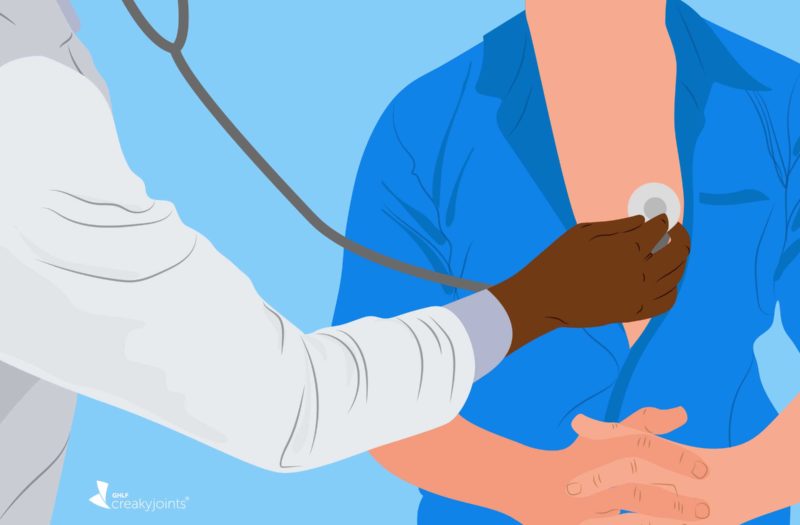Learn more about our FREE COVID-19 Patient Support Program for chronic illness patients and their loved ones.
Emerging research shows that Americans aren’t getting the health care they need during COVID-19, and a recent report shows that this applies to preventive care as well. Preventive care includes routine check-ups and screening tests intended to prevent chronic disease such as cancer.
When researchers at the Health Care Cost Institute looked at a sample of health claims from 2019 and the first six months of 2020, they found that the COVID-19 pandemic is significantly lowering the use of certain preventive health care services.
In particular, the report showed that:
- Mammograms and Pap smears decreased by almost 80 percent in April 2020 compared to 2019, and by June were still down nearly a quarter from 2019.
- Colonoscopies, which decreased almost 90 percent at one point in mid-April 2020 compared to 2019, were down about 30 percent in June 2020 compared to last year.
- However, PSA tests (which are used for prostate cancer screening), while down approximately 22 percent for the year, have seen a strong rebound and reached near 2019 levels in June 2020.
Overall, “these data suggest that for now, people have chosen to forego care they would otherwise have received with potential implications for their long-term health and well-being,” note the authors.
Chronic diseases are a huge burden for both patients and the health care system, and 60 percent of American adults had at least one chronic disease or condition as of 2014, per a report in the journal Preventing Chronic Disease. What’s more, chronic diseases such as heart disease, cancer, arthritis, Alzheimer’s disease, diabetes, and more are leading causes of poor health, long-term disability, and death in the United States.
Preventive care is important for preventing chronic disease or detecting and treating it at an early stage. However, even before COVID-19, clinical preventive services were largely underutilized despite their effectiveness. In 2015, only 8 percent of American adults ages 35 or older had received all of their recommended, high-priority, and appropriate clinical preventive services — and nearly 5 percent received none, according to the report.
“These interventions, combined with lifestyle changes, can substantially reduce the incidence of chronic disease and the disability and death associated with chronic disease,” note the authors.
What This Means for Patients with Arthritis and Rheumatic Conditions
The avoidance of preventive care could affect rheumatic disease patients in particular, since research has shown they are isolating more strictly than the general public.
What’s more, an estimated 40.9 percent of American adults have avoided medical care in general during the pandemic because they’re concerned about COVID-19, according to the U.S. Centers for Disease Control and Prevention’s Morbidity and Mortality Weekly Report. That includes 12 percent of respondents who avoided urgent or emergency care and 31.5 percent who avoided routine care.
If you’re worried about your risk of contracting COVID-19 during routine preventive care, talk to your physician(s) about which check-ups are necessary for you right now, and what precautions a given clinic may be taking to reduce the spread of germs. When possible, take advantage of telehealth appointments.
It’s important to remember that while nearly every activity outside of your home carries a risk for COVID-19 transmission, there are also clear risks associated with forgoing preventive health care.
Get Free Coronavirus Support for Chronic Illness Patients
Join the Global Healthy Living Foundation’s free COVID-19 Support Program for chronic illness patients and their families. We will be providing updated information, community support, and other resources tailored specifically to your health and safety. Join now.
Czeisler MÉ, et al. Delay or Avoidance of Medical Care Because of COVID-19–Related Concerns — United States, June 2020. Morbidity and Mortality Weekly Report. U.S. Centers for Disease Control and Prevention. September 11, 2020. doi: http://dx.doi.org/10.15585/mmwr.mm6936a4.
Levine S, et al. Health Care Industry Insights: Why the Use of Preventive Services Is Still Low. Preventing Chronic Disease. March 14, 2019. doi: http://dx.doi.org/10.5888/pcd16.180625.
The Impact of COVID-19 on the Use of Preventive Health Care. Health Care Cost Institute. September 9, 2020. https://healthcostinstitute.org/hcci-research/the-impact-of-covid-19-on-the-use-of-preventive-health-care.






